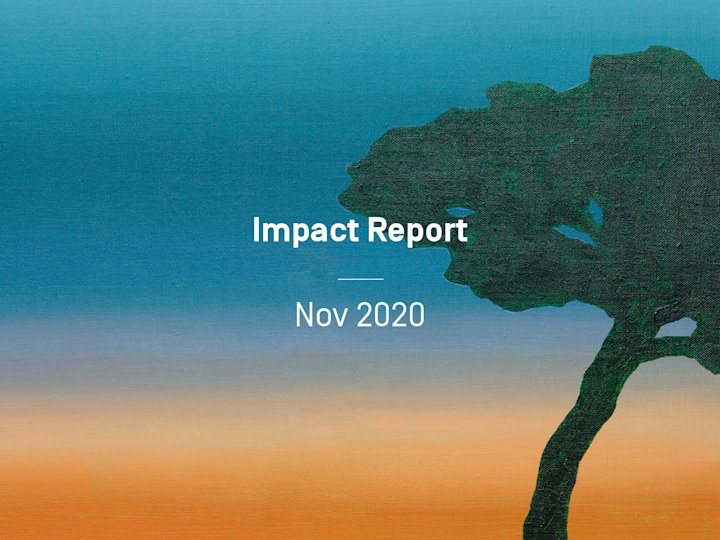Our Impact Report is a compact monthly update that keeps you up to date on our progress. This is where you’ll find all the latest facts and figures about our projects in November. So let’s get started because, as always, we have a lot to report!
Your money is our capital for change
Your money is our capital. Unlike at many other conventional banks, it is not invested in the arms industry, factory farming or coal-fired power plants. So the more money we take away from these banks, the better. Money, after all, needs to be part of the solution, not the problem.
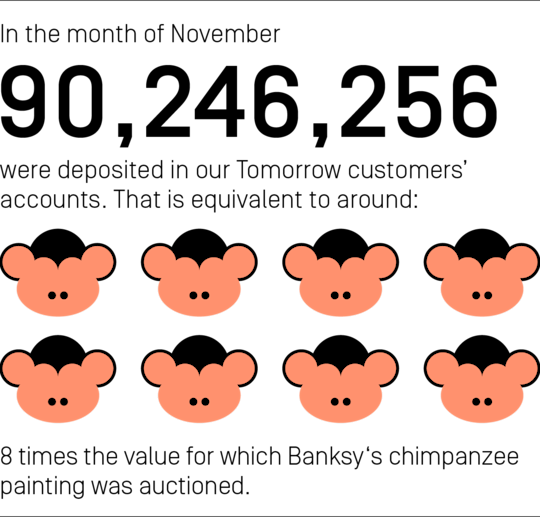
The more money that is paid into our accounts, the more good we can do.
In the month of November
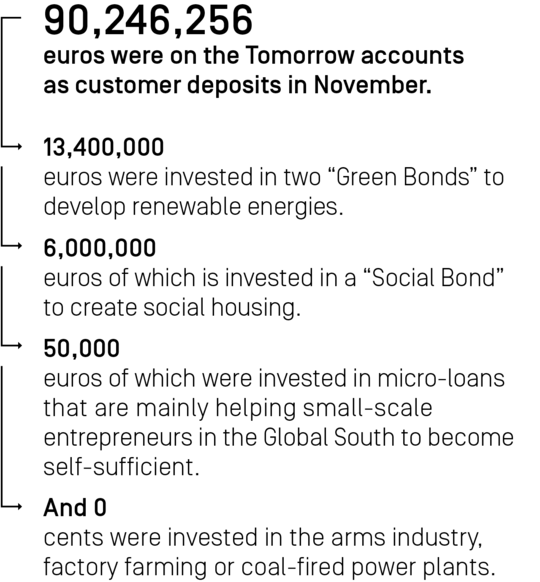
Our joint contribution to protecting the climate
Every time you use your Tomorrow card in a store, a small fee is paid to us by the retailer. But instead of pocketing the money for ourselves like other banks do, we are investing it in a forest protection project in Brazil. The more often you pay using your Tomorrow card, the more square metres of rainforest are protected.
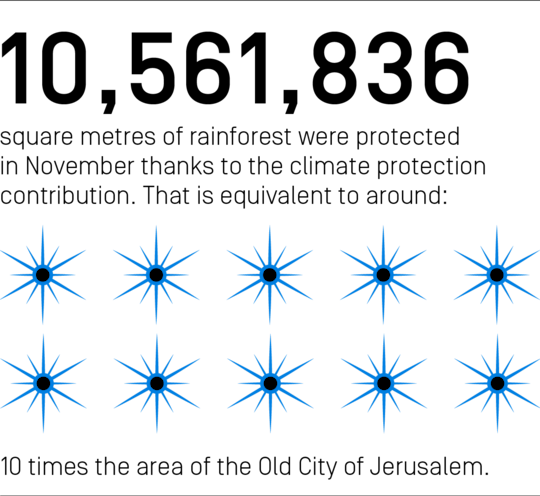
The Amazon is the world’s largest, intact rainforest and the climate protection contribution is helping to preserve it. The money is being donated to a forest protection project in Portel, Brazil and the area we are protecting is growing every month.
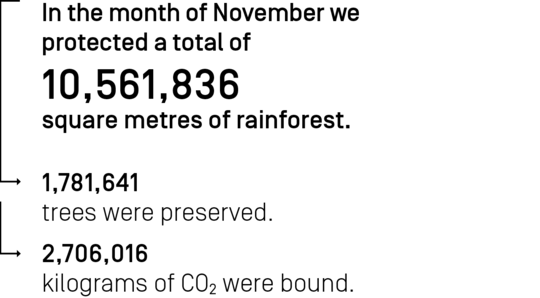
Offset your carbon footprint with Tomorrow Zero
With Tomorrow Zero, our premium account, you can offset as much CO₂ as the average German emits in a year: around 11 tonnes. The more of our users who switch to Zero, the more CO₂ will be offset. Together we can make a significant change.
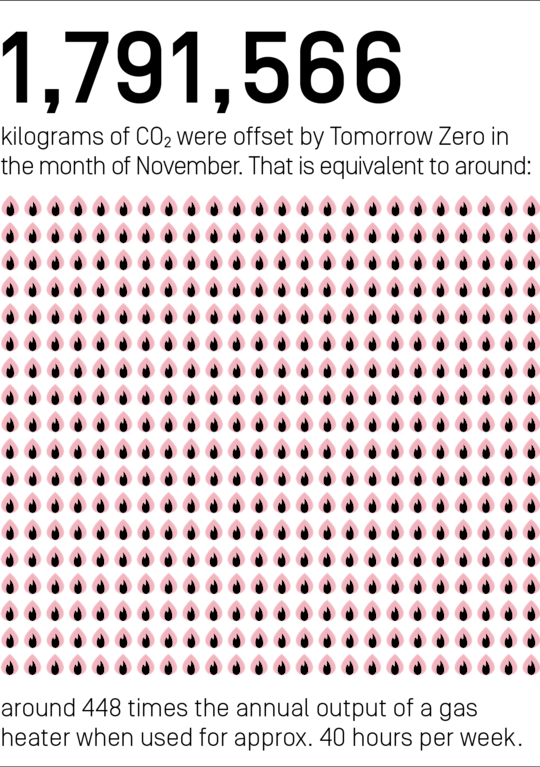
Specifically, we are currently funding two climate protection projects for the CO₂ compensation; the biogas plants project in Vietnam is now fully financed. Read more about how that works here.
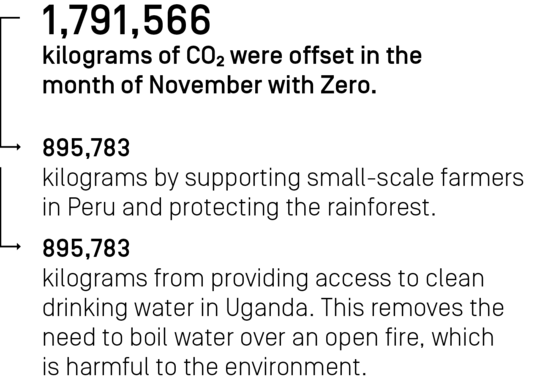
Tomorrow and the Sustainable Development Goals
In 2015 the United Nations defined a set of global goals for sustainable development: the Sustainable Development Goals (SDGs). Tomorrow is committed to these SDGs. In each of our Impact Reports we will pick out one of the goals and explain in more detail how we are contributing to fulfilling it.
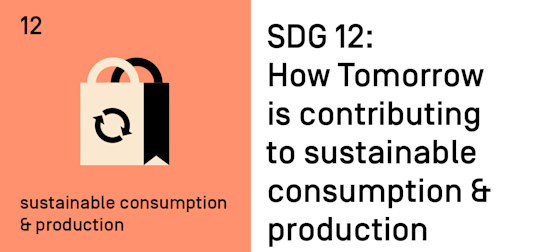
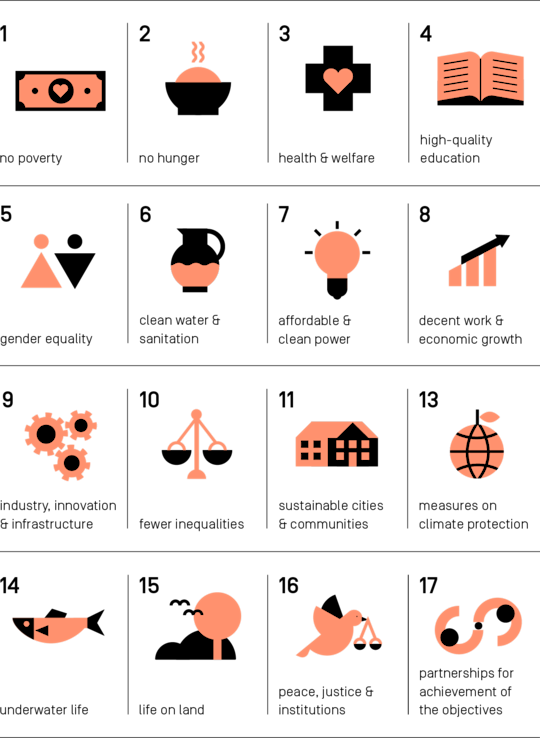
We ensure that our climate protection projects are not only for the good of the climate, but also the people in the Global South. This is being done with the “interchange fee”, which we are using to support a rainforest protection project in Portel, Brazil. This project is now also being expanded into agroforestry, which is seeing new beehives being distributed as an alternative source of income for the locals. 500 beehives are being brought to the project region for honey production and will be looked after by the families living there. The production of high-quality bee honey creates an alternative source of income to illegal deforestation and contributes to the protection of the rainforest. This means that conserving the habitat for the bees becomes more of a priority than felling the trees. Bee experts bring queen bees to populate the hives, as well as ensuring their correct transportation, upkeep and the training of the families and groups that will be looking after the bees in the future. But the project also offers further sustainable income opportunities for the inhabitants of the Amazon, such as through the cultivation of pepper and the training of forest rangers.
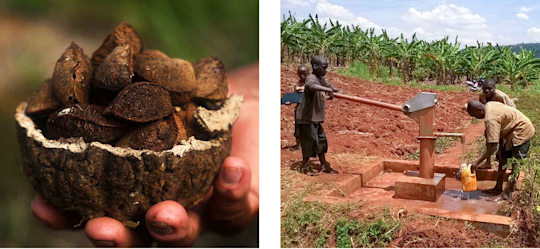
Photos: ClimatePartner
As part of Tomorrow Zero and in line with the SDGs, the project finances boreholes in Uganda by “upcycling” them: i.e. repairing existing wells and thereby conserving resources. And it also supports small-scale farmers in Peru. Thanks to the project, these farmers are given the rights to land, which they can use to harvest Brazil nuts on, for example, rather than the trees being cut down. The farmers also receive micro-loans and support with marketing and processing the nuts. And then of course we also have the Tomorrow Zero account itself, with which we offset as much CO₂ as the average German emits in a year and enable our customers to take responsibility for their own consumption. As a company we also offset our own carbon footprint, always ensuring we buy from sustainable, local suppliers and work with partners that produce sustainably.
